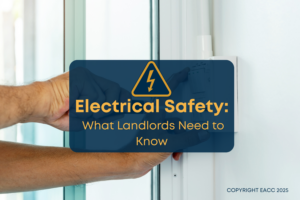Last week I gave the first in a two-part series on tips which might be useful for those renting for the first time – or in a long time – and here is the second part to that which I hope you find useful.
Sort out the bills
Let utility companies and the Council Tax department know of your move-in date, the names of all tenants and all meter readings. If you are sharing the property, work out with your housemates how to split and pay the bills and get them paid on time. You are jointly responsible for the property so setting ground rules is important.
Insurance
Make sure you have contents insurance. The landlord is required to insure the building itself and their own contents, but you must have insurance to cover your own belongings.
Safety first
Smoke alarms are required on all floors of your home and carbon monoxide detectors in any room where solid fuels are burnt. These all need to be tested on the first day of the tenancy and this is usually done when checking in, when the landlord or agent will probably also undertake an inventory and schedule of condition.
Check the inventory
The inventory is a list of everything provided with the property and it should record the condition everything is in. Notify your landlord or agent if you disagree with anything on the inventory as it will affect how much of your deposit you get back.
Sort issues before they become problems
Make sure you know how to report any issues – especially in an emergency – and make contact immediately about any repairs or concerns as its often easier and cheaper to fix an issue sooner rather than later. If you leave the house empty for any length of time, tell your landlord or agent so they can keep an eye on the property for you while you’re away.
Renting with pets
If you have permission for a pet, you may have additional clauses in your tenancy agreement such as extra cleaning at the end of the tenancy and if not upheld this can affect your deposit. Do not get a pet without checking with your landlord first – some will agree but others may not if the property is not suitable. Breaking a no pets agreement can be used as grounds for eviction.
Keep good records
This could be vital if there’s a dispute when you move out so take photos, keep receipts or correspondence and always get written consent for any changes you want to make, such as decorating.
Return the property as you found it
Most disputes at the end of a tenancy are about the condition of the property so make sure it is clean and in the same condition as when you arrived.
As always, if you have questions on this or require any other advice, please do not hesitate to contact me as I am always happy to help.






